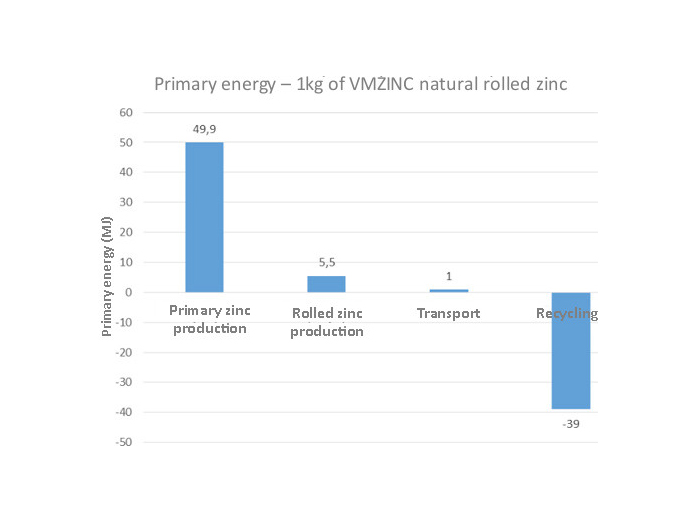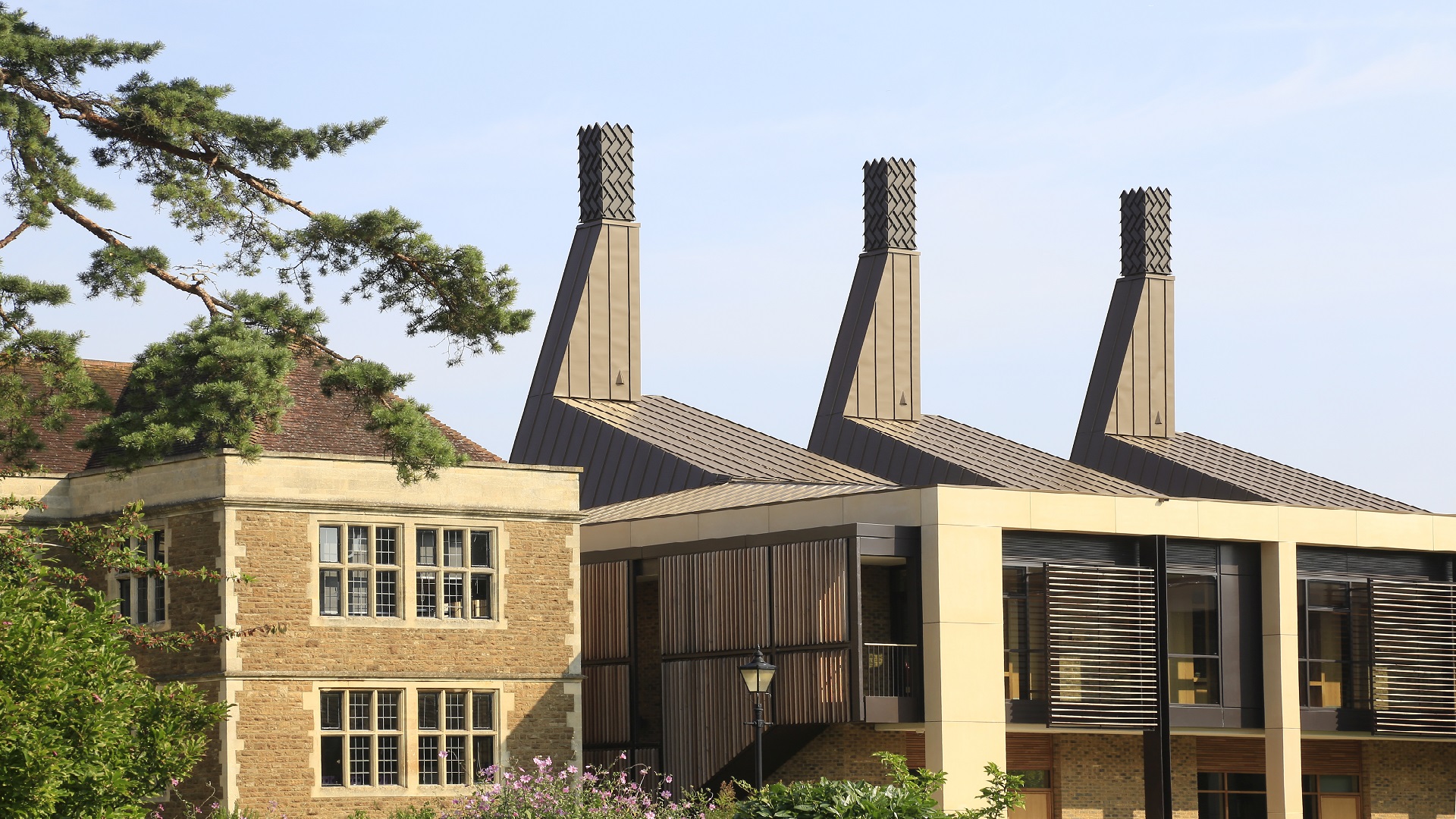The embodied energy relating to the production of 1 kg of VMZINC natural rolled zinc is 56.4 MJ; 90% of the embodied energy is due to the production of highly pure primary zinc. Recycling of used rolled zinc at end-of-life makes it possible to save 39MJ when it is used as a secondary raw material. For the entire life cycle including recycling at end-of-life, the overall embodied energy is 17.4 MJ (5).
Production of primary zinc and ISO 14001
The primary zinc used to manufacture VMZINC rolled zinc comes mainly from a production site that is ISO 14001 certified.


